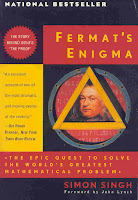Prudence: Doing what is right
This is Part 1 of a series of 4 talk outlines on the cardinal virtues.
 | ||
|
I. WHAT IS PRUDENCE
- Man has body and soul
- Body has faculties of senses and passions. They are blind to what is true and good.
- Soul has faculties of intellect and will. These are able to know what is true and good.
- Human virtues enable a man to train the faculties of his soul to govern the faculties of the body so that man can direct himself freely (i.e., without obstacles) towards his ultimate goal, which is Infinite Truth, Good and Beauty, that many people identify with a Supreme Being or God.
The Cardinal Virtues
- There is a group of virtues, that, due to their significance, are called cardinal virtues.
- "Cardinal" comes from cardo, which is Latin for hinge.
- The belief is that, the perfect man lives his life around these cardinal virtues.
- There are 4 cardinal virtues: prudence, justice, temperance, fortitude.
- We will tackle them one by one.
- In this talk, we will tackle prudence.
Description of Prudence
- Aristotle defined prudence as recta ratio agibilium, "right reason in action."
- Prudence, in a simple way of saying, is acting correctly, or doing what is right given a set of circumstances.
3 "Stages" of Prudence
A prudent person considers things in 3 stages:
- 1. He has the habit of considering if what he is doing is right or wrong
- Therefore, he is mature and reflective.
- Problems
- One acts only according to what he feels, according to his moods.
- One acts according to the what the majority believes.
- One rationalizes his action by saying that most people are doing it anyway.
- We have to practice a healthy critical thinking.
- It is alright to ask questions about the faith, if we are also humble and are sincerely seeking for answers. This will help us mature.
- 2. He makes judgments (on whether something is right or wrong)
- He considers things as they are
- Practice of the intellect, to gather the necessary inputs and consider them
- Problems
- Indecision; delaying decision
- Not seeing things as they are.
- Person rationalizing his actions (because of his inclinations to them)
- 3. He acts according to the judgments he has made.
- He reasons thus
- This is right, I'll do it.
- This is wrong, I won't do it; I'll avoid it.
- This is right ... but it's difficult... I'll still do it!
- This is wrong ... but it's pleasurable... I won't do it!
- Practice of the will to do what the intellect has seen
- Problems
- Inaction (freezing); delaying action
- Person being overwhelmed by fear, difficulty
Although we call these 3 stages, in reality, we may not be able to distinguish them in one action.
II. HOW TO LIVE PRUDENCE
What is right?
- We have learned that prudence means doing the right thing, considering things whether they are right or wrong, then doing what is right. But, how do we know what is right?
- Is something right only if it makes us feel good?
- Adultery certainly feels good at the moment of committing it, but we can't say it is right
- Is something right only if it is easy?
- It's easy to bully someone weaker than you. But it's not right.
- Is something right only if it is spontaneous?
- If you are angry and you unjustly hurt someone in frustration, it's still not right.
- Is something right only if we understand it?
- If you didn't study, and you didn't get the correct answer in an exam, the teacher won't tell you, "It's okay. You didn't understand the lesson anyway."
- Is something right if most people say it's right?
- What is right is not determined by votation or propaganda
- Related quotes:
- William Penn: Right is right, even if everyone is against it, and wrong is wrong, even if everyone is for it.
- St. Augustine: Right is right even if no one is doing it; wrong is wrong even if everyone is doing it.
- GK Chesterton: Right is right, even if nobody does it. Wrong is wrong even if everybody is wrong about it.
- So how do we know what is right?
- First, we have to distinguish among what is right scientifically, legally, and morally.
- Scientific correctness is the conformance of an observation or model to actual physical laws
- Legal correctness is the conformance of an action with the civil law.
- Moral correctness is the conformance of a human action with natural moral law.
- So we see that there are different levels here.
- Regarding scientific correctness, physical laws validate observations and models. Many times it happens that a model undergoes changes as better observations are made (such as what happened, and will perhaps continue to happen, with the atomic model).
- Regarding legal correctness, civil law is man-made and could be mistaken.
- Regarding moral correctness, it is only the Natural Moral Law which could direct man to his ultimate end. (More on this below.)
- Thus, what is right, in the last analysis, is determined by the conformance of man's actions to the Natural Moral Law.
Corollaries
- Man does not determine what is right
- We can't determine the truth for ourselves.
- Yes, we have to judge for ourselves if something is right or wrong, but we don't make something right or wrong. We could be mistaken in our judgment.
- In a similar way, a lawyer has to decide if something is in keeping with the law or not, but he is only an interpreter. He does not create the law. He only interprets it. He could be mistaken in his interpretation.
- What is right is determined by the Natural Moral Law
- This is the User's Manual that the Divine Creator has left us, and He has written it in our hearts.
- Each one of us has a conscience, which makes judgments over our actions. Perceived bad actions result in remorse while perceived good actions result in joy and encouragement.
- We are obliged to always follow our conscience. However, we also have an obligation to form it. We could have an erroneous conscience.
- Our conscience only makes judgments on the correctness of our actions. It does not determine their correctness. Thus, even if we believe that something is right, it could actually be objectively wrong if we interpret it against the Natural Moral Law.
Practical Tips to Live Prudence
- Know more about the Natural Moral Law and, if you're Catholic, augment it with the knowledge of the Faith and teachings of the Catholic Church.
- Remember how faith widens our perspectives (See Part 2 of Essentials of Leadership: Creed and Charm)
- Form your conscience through mentoring or spiritual direction
- Find a mentor who could help you navigate through moral intricacies
- Ask questions
- Resolve doubts
- Get advice
- Self knowledge and examination
- Daily examination of conscience
- Attend recollections and retreats
- Learn from prudent persons
- Read the lives of the saints; choose a specific saint.
- Read good books. Ask your mentor or spiritual director for advice on this.
Vices against prudence
- Lack of it: Recklessness, laziness, indecision, fickleness
- "Lots" of it: Cunning, being segurista
- We also have to take justifiable risks





Comments
Post a Comment